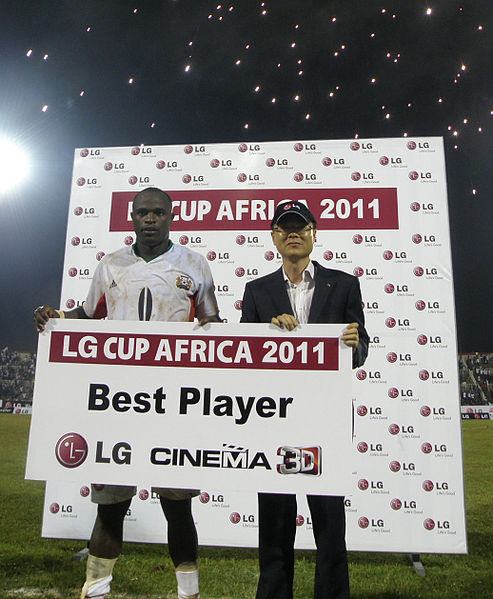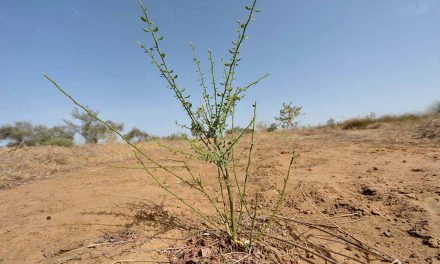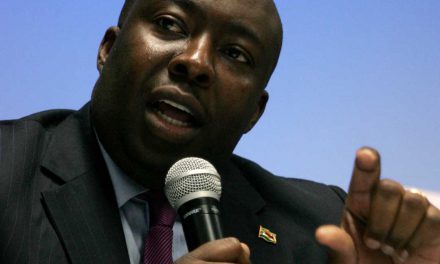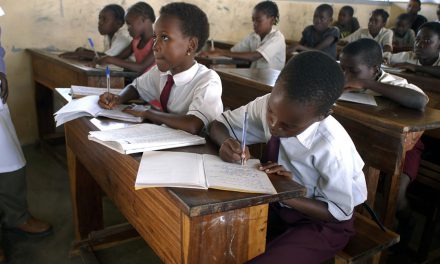The beautiful game has transformed the lives of many African football stars, but maladministration at home means these players have to go overseas to shine
Like many visitors before him, Facebook founder Mark Zuckerberg did the tour of Mama Oliech’s, a “must visit” restaurant in Nairobi, when he came to Kenya last year. The eatery is the epitome of how football can change the fortunes of a family.
“I had lunch in Nairobi with Joseph Mucheru, the Kenyan Cabinet Secretary of Information and Communications… we ate at Mama Oliech’s Restaurant – a local place everyone recommended. One of my favourite parts of travelling to a new country is trying the food. I enjoyed ugali and a whole fried tilapia for the first time and loved them both!” Zuckerberg gushed.
The restaurant, located in the upmarket Hurlingham area of Nairobi is owned by Mary Oliech, whose son Dennis is one of Kenya’s best-known professional footballers. Owing to Dennis’s fame and fortune, the restaurant not only got a facelift but receives unquantifiable visibility, thus attracting more customers.
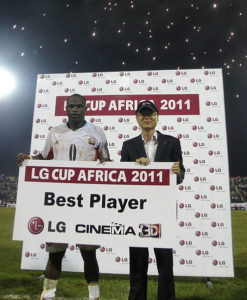
Dennis Oliech awarded best player at the LG Cup Africa. Photo: LG Electronics
Dennis is a legend of Kenyan football, barrelling his way into the national psyche when still a schoolboy. He later joined the paid ranks, playing for Al Arabi in Qatar. Holding the record for the highest number of goals scored for the national team – 34 – Oliech was later to ply his trade in France playing for Nantes, Auxerre and Ajaccio.
Dennis’s story mirrors many others across the African continent, where football has lifted entire families out of poverty to better lives. George Bwana is an agent whose charges play in Kenya, Zambia and Europe. The former secretary general of Kenya’s Gor Mahia Football Club says he is impressed with the economic progress some of the players in his stable are making.
“I have seen them buy flats or build flats for rental purposes. What most of these players need is good financial advice because their time as players is fleeting. It is my duty as their manager to give them sound financial advice,” says Bwana, who is currently undertaking a Masters in sports management from South Africa’s Nelson Mandela University.
Meddie Kagere exemplifies the current crop of African players – borderless people who move to where the money is. Born in Uganda of parents from the Democratic Republic of Congo (DRC), Kagere has played in Uganda, Rwanda, Kenya, Albania, and is now with Tanzanian champions Simba SC.
In an earlier interview with this writer, Kagere said that footballers’ careers had a short life span, which they must make the best of when they can. “I know in a few years’ time I will be over the hill and I must always look for what is best for me and my family,” he said.
Unfortunately, this strong urge to succeed has seen some players and their managers cut corners. This is rampant among African players, especially as regards age. It is an article of faith that most African players have two ages – their real age and their playing age; the latter can, at times, be as much as five years lower.
In 2016, Nigeria’s 2015 Fifa U-17 World Cup-winning squad had almost half of its 60 tested players reportedly fail a mandatory MRI screening that establishes the age of squad members. This faux pas was to continue at this year’s World Cup, when Nigerian goalkeeper Francis Uzoho fired off a tweet celebrating his son’s 17th birthday.
“Wow, my second son, Michael, is 17 today. I seek God’s blessings for him. Daddy loves you, boy,” he posted. Which any normal dad would do. However, the matter gets a bit complicated when you consider that Uzoho’s official papers show that he is only 19 years old. So, we have a 19-year-old with a 17-year-old son. The tweet was quickly pulled down when it went viral.
Then there is the issue of corruption. This June, the Ghanaian government dissolved the country’s football association after its president, Kwesi Nyantakyi, was pictured taking $65,000 from an undercover reporter pretending to be a businessman keen to invest in Ghanaian football.
Also netted in the operation was Kenyan Adan Marwa, who was set to officiate as an assistant referee at the World Cup in Russia this year. He was caught on film taking a $600 bribe from the same undercover reporter. The continent’s football body, CAF, immediately swung into action, banning Marwa from football activities for life.
The other cheating area is highly debatable. It is a matter of fact that many players and their teams believe in the power of black magic. There have been cases where teams refused to use official entrances, believing that the designated entries had been “treated”.
Agent George Bwana confesses there was a season when his club, Gor Mahia, was doing badly in the Kenya Premier League. “The league was well under way and here we were lying in position 13 out of 18. Some elderly supporters came to my office and ordered me to look for a powerful witch doctor to straighten things out. Being a staunch Christian, I refused. All I asked was for more money to sign quality strikers, to which they agreed. At the end of the day, we missed winning the league by a whisker, finishing second,” he says.
Bwana says that having healthy account books will fix most of a club’s problems. In comes sports betting giant SportPesa. According to the CEO, Captain Ronald Karauri, the firm came into football to help raise the standards. Currently, the company sponsors the Kenyan premier league as well as the two leading clubs, Gor Mahia and AFC Leopards; together, the sponsorships amount to $3 million annually. “In Tanzania we sponsor Yanga and Simba, while in the UK we sponsor Hull City and Everton. Southampton is our official betting partner, while Arsenal is our African betting partner,” he says.
Such sponsorship has seen some people accumulate a lot of clout that others have used to propel themselves into politics. The most famous in Africa is Congolese politician Moise Katumbi, who is one of the continent’s richest men. Katumbi – who owns TP Mazembe, which has won the CAF Champions League – is seen as a front-runner in the DRC’s presidential polls on December 23, this year.
In Liberia, George Weah, riding more on his exploits in football than his political abilities, won that country’s presidential elections in December last year, beating more seasoned politicians.
So, what does the future hold for Africa’s football? As Karauri of SportPesa says: “Africa is full of talent and what we lack are structures to nurture this talent. We need to identify young talent, but unfortunately even the federations seem to have lost focus. If African governments make sports a priority, which they should, African teams can dominate the world.”
But not everyone shares Karauri’s view. Roy Gachuhi is a veteran football journalist with over 40 years in the trade and an elephantine memory of regional football events. Roy, who has just written a book, Kickoff, that focuses on the beautiful game, argues that African football has been internationally influential for some time, pointing out Weah’s winning of the World Player of the Year in 1995.
He agrees with Karauri that mismanagement is the bane of African football. “The problem is with our management,” he told Africa in Fact. “It is still in the stone age. Its main hallmarks are mind-boggling greed and incompetence. This is the challenge of the future.”
Tom Osanjo is a Kenyan journalist working with an INGO in Nairobi. He was the 2009 Joel Belz International Media Fellow and the 2017 Coaching and Leadership Fellow, which is a programme offered by The Media Project and the Poynter Institute. His works have been published around the world, and when he is not working, Tom is engaged in church activities and supporting Gor Mahia Football Club. He can be reached on tomosanjo@yahoo.com

